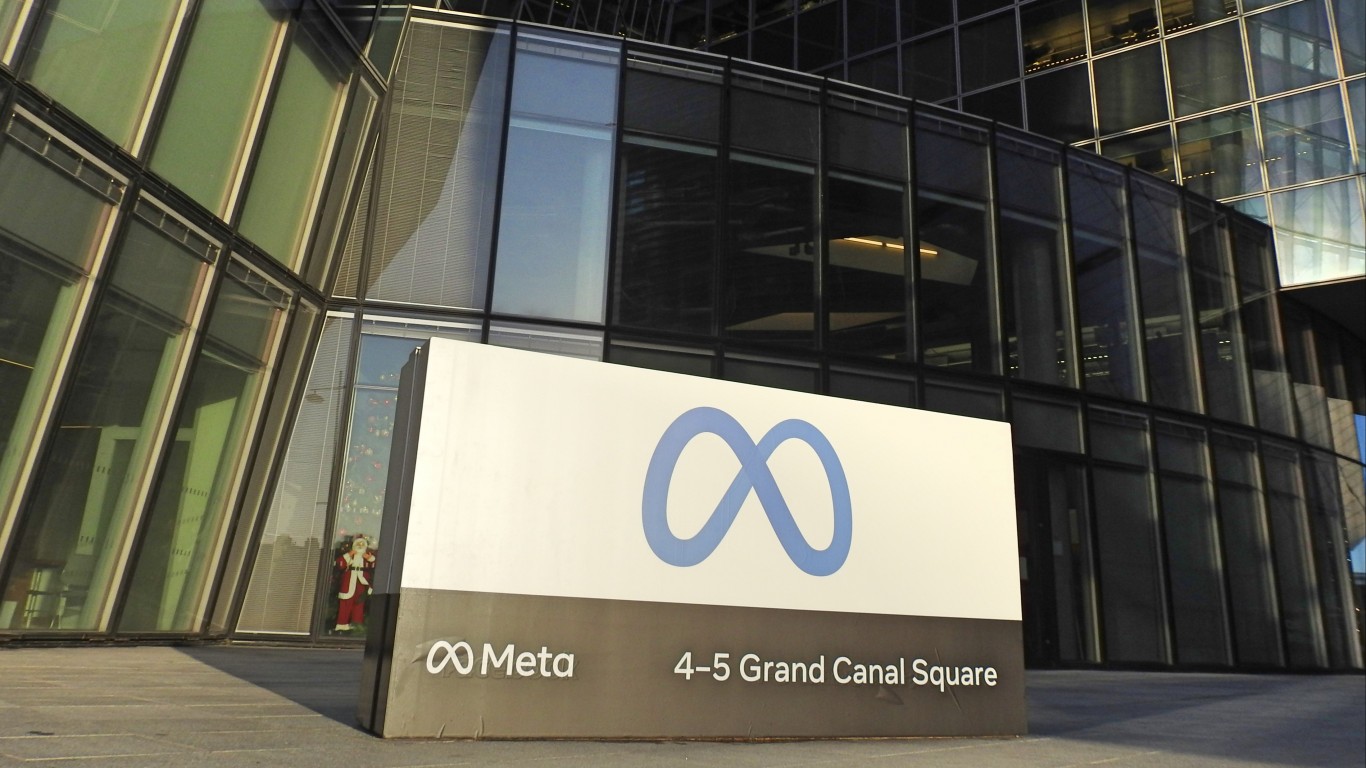
In today’s episode of the 24/7 Wall St. Podcast Doug McIntyre and Lee Jackson discuss why gold and commodities are suddenly surging. Everything from gold to cocoa to a Big Mac is getting more expensive. They discuss the main drivers pushing prices up today, and what investors should know about it.
Transcript:
This is Douglas McIntyre, the editor-in-chief at 24-7 Wall Street.
And from Louisiana, Lee Jackson, senior editor.
Everything from stocks to publicly traded stocks to finance and the economy.
Lee, I’m watching gold.
And I really have never seen anything like it.
Why such a huge move?
Well…
You have seen something like it, and so have I, but that was in the 1980s.
Okay.
And we were much younger.
One thing that’s interesting is gold did hit an all-time high recently at $2,265.
And interestingly enough, on an inflation-adjusted basis, the numbers were actually higher in the 80s.
But I think it’s been a confluence of things.
Yeah.
Number one, I think the raging stock market has made central governments just absolutely piling in.
China buys massive amounts of gold, and so do other sovereign… to kind of back their sovereign debt, which is probably looking as weak as ours.
So I think that’s been a huge, huge reason behind the big move higher over the last year, which at 24-7, we’ve talked about this for almost 18 months.
We predicted last year gold would hit all-time highs.
I understand what you’re saying.
However, if you buy gold almost forever, in some of these countries, you’re not really backing the curve.
I mean, it’s not really enough, is it?
It’s probably half of a bet.
If our sovereign currency just goes to zero, we have the gold.
But I mean, look at it this way.
We were selling gold at Walmart, or I’m sorry, at Costco.
And it went like wildfire.
So maybe the retail investor and worried investors about our staggering debt have started to buy it in a big way.
That’s an interesting point.
I know a fair number of people, and I’m not talking about billionaires, you know, upper class, upper middle class people who have bought regularly over the last two or three decades gold.
Every year they buy a certain amount.
I don’t know where they store it.
Probably not safe.
I don’t know.
But what’s…
Again, is this sort of a hedge against catastrophe?
What’s the deal?
I think it is.
And, you know, there’s people like Warren Buffett.
He’s always said, I see no value in gold.
And it’s like, okay, well, if you’d bought gold every year that you’ve run Berkshire Hathaway, you’d have made a fortune.
But, you know, you know how it is.
There were long stretches, long stretches where people, gold just went sideways or down and, you know, people would lose interest.
And I think that the retail interest, you know, has dovetailed on the institutional interest and the government interest to push prices higher.
Yeah.
Let’s move for a second from gold to some other sort of metal and agricultural things that you and I actually see out in the fields or in mines.
The commodity prices are bouncing around.
There was a point at which they were just sort of a couple of years ago, everything was going north.
How should people look at the fairly quick moves up and down in the commodities markets?
Well, it’s difficult to trade.
And remember, I think it was two summers ago, lumber just absolutely skyrocketed to a level it had never traded at.
Although conversely, a couple of summers ago, oil traded so low that it was actually trading at a negative rate. which seems impossible.
But, you know, I mean, people were having to pay the storage facilities, you know, for their inventory.
So I think for the average citizen, you see it because inflation will not taper off.
I mean, it’s come down from the 11% high that we had.
But, you know, this level that it’s hit at 4% has been pretty stable, you know, 3.8 to 4 for the last six months.
So here’s a caution to our investors, our readers.
Cocoa has almost tripled in 12 months.
The places in West Africa where it’s grown have had first drought, then heat, then flood.
I mean, literally everything but a plague of locusts.
Which may be next.
Right.
So what’s happened is the price of chocolate has gone up.
Yep.
But A writer in the Wall Street Journal recently pointed out that a lot of the run in gold is done by traders.
People say, oh, well, it’s just supply and demand.
They needed cocoa.
There wasn’t enough of it.
So there’s this hockey stick in cocoa prices.
If you look at how institutions work, that isn’t always how things turn out, is it?
No.
You know, prices are always driven by traders.
I mean, you know, I was on Wall Street at a very high level for well over 20 years and I saw it up and down.
So and it’s the same with the oil markets, because what they’re always constantly trying to do is they’re not trying to see what it’s going to do tomorrow or the next day.
They’re making big bets on four months, six months, nine months down the road.
And that’s where all the volatility is, you know, injected into the trading.
Another thing I think investors should always look at is if the price of something goes up, what companies are hurt?
So I’ll give you an example.
Good point.
Starbucks has traded like a dog for over a year.
And, you know, it’s a good company.
It’s a great brand.
Their earnings have been good.
But one of the things that if you look at it is their cost of goods is has snuck up.
And in some cases, whether it’s coffee, sugar, they sell things that have chocolate in them.
When you watch commodities and as an investor, you want to watch who buys those commodities for the core parts of their businesses.
Right.
I remember once many, many years ago when I was driving to work and I used to go to Starbucks every day and I asked the manager at a Starbucks, I said, What is this, you know, 295 then vintage coffee go for or cost you to put in the cup?
And he’s like, a dime, whatever.
It was a staggering, staggering profit margin potential.
And they’re getting squeezed now.
And they’re having labor issues.
So there’s a double squeeze put on them.
You’ve got a double squeeze.
And quite frankly, we should talk about that sometime.
Yeah.
They are not unlike.
What happened to the car companies, the cost of labor in the United States or UPS is moving up sharply.
And that’s worth us spending some time on next time around.
But when you look at commodities, leaving gold out, which I understand people love to own gold, it’s going up in price.
There’s a temptation to buy anything that’s going up in price.
The other thing, though, is investors ought to watch commodity prices and track them through where they hit corporate costs.
Because if you’re buying stocks in companies, it’s always good to know what their underlying costs are.
And with companies like Starbucks and McDonald’s, it’s not hard to figure those out.
No, they’re going higher.
And, you know, I’ve heard complaints about these McDonald’s meals that cost $20 and $30 out in California.
And it’s like, yeah, somebody’s getting big increases in pricing.
Yeah, they are.
And state taxes.
I’m going to go to Costco, get my $60 membership card right now and buy some gold.
It’s sold out, so you may not be able to.
They’re sold out.
I don’t know what I’m going to do except for maybe I’ll sleep in a tent there.
But I will see you soon.
Okay.
Thanks a lot, Doug.
Sponsored: Attention Savvy Investors: Speak to 3 Financial Experts – FREE
Ever wanted an extra set of eyes on an investment you’re considering? Now you can speak with up to 3 financial experts in your area for FREE. By simply clicking here you can begin to match with financial professionals who can help guide you through the financial decisions you’re making. And the best part? The first conversation with them is free.Click here to match with up to 3 financial pros who would be excited to help you make financial decisions.
Thank you for reading! Have some feedback for us?
Contact the 24/7 Wall St. editorial team.



